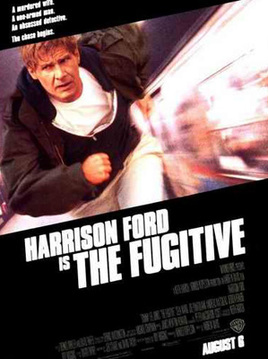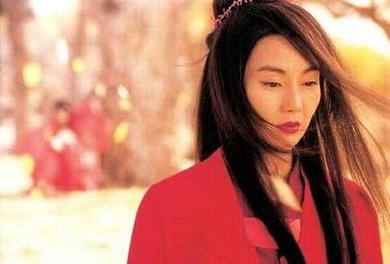|

|
|
A poster of The Fugitive
|
But the market at the time was weak and theaters were suffering a serious drop in revenues. In order to reverse this gloomy trend, in 1994 the State Administration of Radio, Film and Television (SARFT) gave the go-ahead to China Film Group Corporation to import 10 foreign movies each year; all ticket revenues generated by these movies were to be split among the parties involved in movie making and distribution. As a result Harrison Ford's blockbuster, The Fugitive, arrived in China the same year and raked in 25 million yuan in ticket sales, which was viewed as some kind of miracle. The film's huge success drove Chinese movie makers to replicate this distribution model.
As the Chinese market opened to foreign productions, the authorities vowed to support domestic movie making. In 1995 the State Council issued a set of regulations on the administration of films, the first of their kind, stipulating that China's domestic film production should account for a minimum of 2/3 of the total number of movies screened annually. In addition, the authorities stepped up their efforts in funding domestic film making. The money allocated per year has increased from 30 million yuan at the time to a current figure of 120 million yuan.
 |
|
A still from Zhang Yimou's blockbuster Hero
|
In the late 1990s the authorities lowered the market access bar for movie production and distribution and encouraged the participation of private capital, while optimizing theater resources, changing the ownership structure of state-owned film companies, and setting up some major movie studios. It is believed that by 2006 there were about 2,000 private companies specializing in film and TV program production and distribution across China. Now these companies play a significant role in Chinese movie markets with big budget blockbusters like Hero, Big Shot's Funeral, and House of Flying Daggers, among many others.
When China was accepted as a member of the World Trade Organization in 2001, the country capped the number of annual imported movies at 20, double the previous amount. For all the concern that was expressed at the time about its impact on the domestic industry, the decision caused no damage at all to the Chinese movie business.
Inspired by the enormous success achieved in the west by Ang Lee's Crouching Tiger, Hidden Dragon, Chinese film makers decided to bet on big budget and star-studded martial arts productions. It was therefore no surprise to see the US$31 million Hero, directed by Zhang Yimou and starring Jet Li, Tony Leung, Maggie Cheung and Zhang Ziyi, cause so much excitement in 2002 with its record production budget and record box office receipts (250 million yuan) on the Chinese mainland.